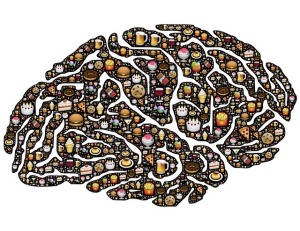While there are no proven “prescription” diets for mental health issues, diet changes may be beneficial for your mental health. As discussed in previous articles, poor nutrition makes healing from anything difficult. Unfortunately you may need to use yourself as a guinea pig to figure out what works best for you, considering your personal make up and preferences. Whatever you do, do your research and anything too radical probably is even if it has some good take-aways.
It seems there are many new diets that are advertized by a lot of people with Dr. in front of their name. It’s hard to know which ones work. Look for ones that have research behind them and a good list of references. Authority Nutrition claims to have research based plans and give you 4 to start looking at to find what is best for you.
 Gut and Psychology Syndrome diet may work for some but appears to be very restrictive in nature. Buy the book here and there is a cookbook too.
Gut and Psychology Syndrome diet may work for some but appears to be very restrictive in nature. Buy the book here and there is a cookbook too.
 The Omni diet was also created by one of my favorite brain doctors, Daniel Amen, MD and his wife, Tanya. Read a synopsis here. Mostly plant based (70%) with 30% lean protein. Dr. Amen is another great resource for how nutrients and supplements can aid in mental health. Start by reading Change Your Brain Change Your Life. We’ll save a more in depth discussion of nutritional substances for a future article.
The Omni diet was also created by one of my favorite brain doctors, Daniel Amen, MD and his wife, Tanya. Read a synopsis here. Mostly plant based (70%) with 30% lean protein. Dr. Amen is another great resource for how nutrients and supplements can aid in mental health. Start by reading Change Your Brain Change Your Life. We’ll save a more in depth discussion of nutritional substances for a future article.
 The Mediterranean Diet is still popular for its health benefits. Mostly plant based, minimal meat, higher in healthy fats.
The Mediterranean Diet is still popular for its health benefits. Mostly plant based, minimal meat, higher in healthy fats.
 The ever popular Paleo Diet (Dr. Loren Cordain, PhD in Health) is another one to consider. It consists of meat, nuts, vegetables, and healthy fats. Anything you can hunt or gather.
The ever popular Paleo Diet (Dr. Loren Cordain, PhD in Health) is another one to consider. It consists of meat, nuts, vegetables, and healthy fats. Anything you can hunt or gather.
In looking at all these diets, they all have one thing in common, whole original form foods. No processed items, low in refined sugars. Where they differ is the amounts/types of meat, some or no grain, and fats allowed. Whether or not you are trying to lose weight or just get healthy one of these should help you feel better.











 population is through
population is through  in the gut
in the gut